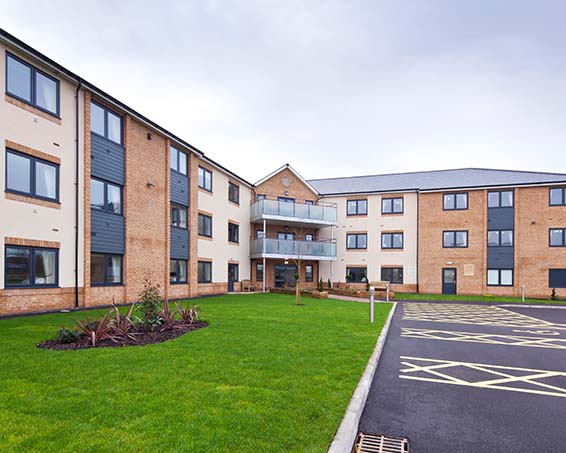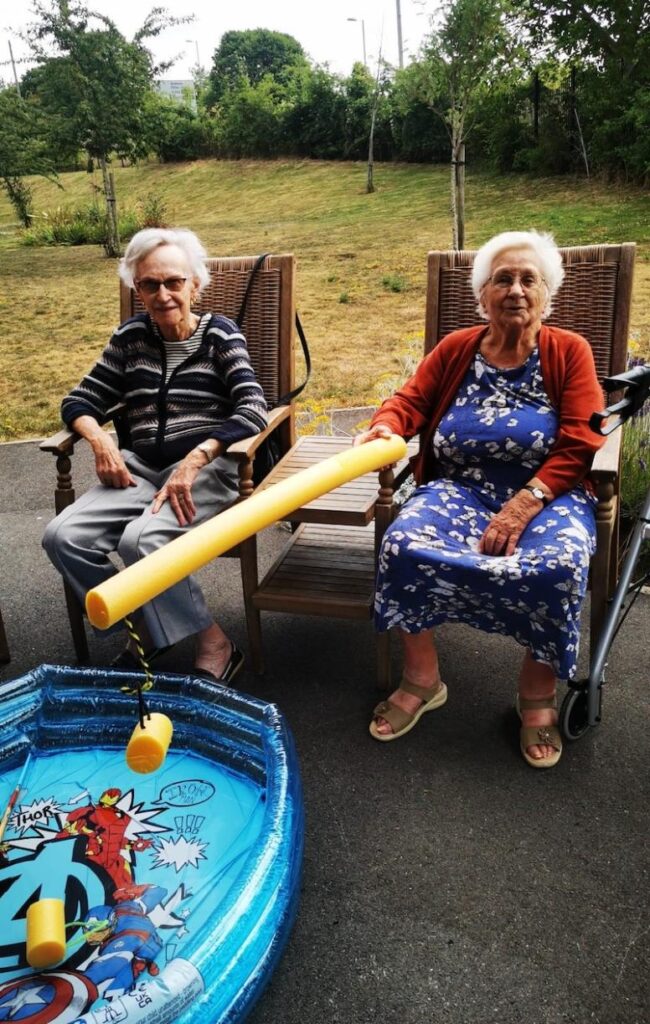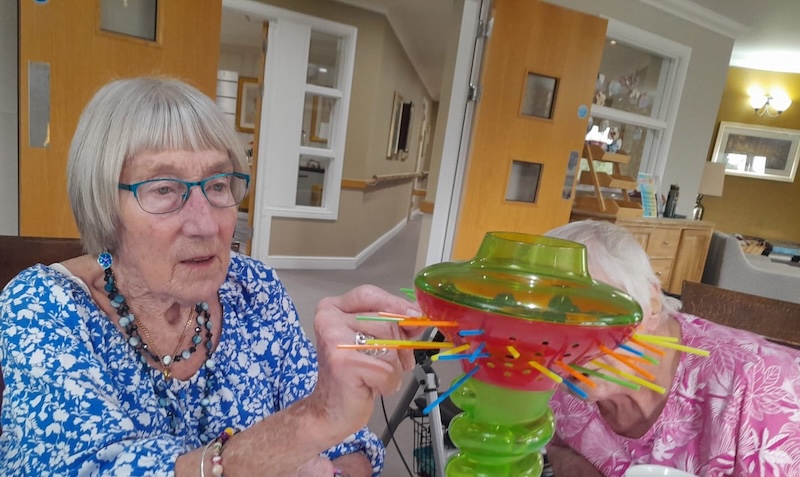What Are The Different Types of Care Homes?

When looking for a care home, it can be difficult to understand the different types of care that are available. From residential care and nursing homes to dual-registered services and all-inclusive homes, each setting provides varying levels of support to suit different needs and preferences.
Understanding the differences between these care home types can make the decision-making process easier and help ensure that individuals receive the right kind of care and support for their needs. In this blog, we explore the different care home types in more detail and who they would be best suited for.
Residential Care Homes
Residential care homes offer a supportive environment for older adults who may struggle with independent living but do not require ongoing nursing care. These homes offer accommodation and round-the-clock personal care, assisting residents with daily tasks such as washing, dressing, taking medication and mobility. The focus is on fostering a sense of community and ensuring that residents are able to enjoy daily life with dignity and respect.
Within residential care homes, residents benefit from a safe and welcoming atmosphere. Trained staff provide personal care and support, while meals, housekeeping, and laundry are typically included. Temporary respite care stays are also typically available, offering relief for family carers or support during recovery from illness. Residential homes are usually pay-as-you-go, so all activities or excursions are paid separately from the weekly fee.
Nursing Homes
Nursing homes are designed for individuals with more complex health needs or those who require regular medical attention. These settings offer all the services of a residential care home, with the added benefit of 24-hour nursing care provided by qualified nurses. Nursing homes are particularly suited to residents who need ongoing medical support, such as wound management, tube feeding, or specialist therapies.
Nursing homes are equipped to care for individuals with chronic illnesses, those recovering from hospital stays and residents with physical disabilities, mental health conditions or advanced dementia. A nursing home is also typically pay-as-you-go, but would cost more than a residential care home due to the level of needs they support.


Dual Registered Care Homes
Dual-registered care homes offer both residential and nursing care within the same facility. This model is especially valuable for residents whose needs may change over time. For example, someone may initially require only personal care but later develop more complex nursing needs. In a dual-registered care home, residents can remain in familiar surroundings as their care requirements evolve, avoiding the disruption of moving to a different setting.
These homes are staffed by both carers and qualified nurses, allowing for seamless transitions between different types of care and an overall continuum of care. This flexibility is particularly beneficial for couples who may have differing care needs but wish to remain together. This type of care home is also typically pay-as-you-go, with the care, accommodation, meals and housekeeping included, but anything additional comes with an extra cost.
All-Inclusive Care Homes
All-inclusive care homes provide a comprehensive approach to care, with all services and amenities included in a single, transparent fee. This model removes the uncertainty of additional charges and offers peace of mind to residents and their families. In an all-inclusive care home, residents receive personalised care plans that address their individual needs, whether they require residential care, nursing care, dementia care or respite care.
The all-inclusive fee typically covers accommodation, meals, laundry, housekeeping, a full programme of activities and outings, and access to high-quality facilities such as gardens, hair salons, and communal lounges. Qualified nurses and carers are available around the clock, ensuring that every aspect of care and support is provided with compassion and professionalism. Residents benefit from a vibrant community life, with regular opportunities for social engagement and connection with the local community.
All-inclusive care homes are particularly well suited to those seeking long-term care, respite care, or end-of-life care, as all aspects of well-being are addressed without the worry of hidden costs. Families can enjoy peace of mind that their loved ones are receiving the highest standard of care, even as their needs develop, as they can easily transition between care types without needing to move elsewhere.



Which Type of Care Home Is Best for My Loved One?
Choosing the right care home depends largely on your loved one’s specific needs and preferences. A professional needs assessment can help determine the level of care required, whether that is residential support, nursing care, dementia care, or more specialist services. This can also provide you with confidence about what type of facility you should begin looking at.
It is also important to consider how fees are structured. Some care homes offer an all-inclusive fee covering accommodation, care, meals, activities and additional services, providing financial clarity and peace of mind. Others charge separately for extra services, which may suit families who prefer to pay only for what is used. Understanding these options will help you make an informed decision that balances care needs with practical considerations.
The Role of The Care Quality Commission
All care homes in the UK are regulated by the Care Quality Commission, which is responsible for ensuring that standards of care, safety, and well-being are consistently maintained. The Commission conducts regular inspections and publishes detailed reports, which can give care seekers an insight into the quality of care provided. This regulatory oversight applies to all types of care homes, including residential, nursing, dual-registered and all-inclusive settings.
Choosing the Right Care Home
Selecting the most appropriate care home is a big decision that requires patience and compassion. It is important to consider the presence of qualified nurses, the availability of transitioning between care types, the approach to daily life and activities and the transparency of fees. Visiting potential care homes, speaking with staff, looking at their reviews and reviewing Care Quality Commission reports are all essential steps in making an informed decision.
The right care home will provide not only the necessary medical and personal care but also a compassionate and supportive environment where residents can enjoy a fulfilling life. Whether the need is for permanent care or short-term support, the right care home will enhance the quality of life for you or your loved one.



Continue Doing What You Love Most at Harrier Grange Care Home
Harrier Grange Care Home is an all-inclusive care home, offering a comprehensive range of services including residential care, nursing care, dementia care, respite care and palliative care, designed to meet the diverse needs of our residents. Before an individual moves in with us, we spend time getting to know them, their needs and their history to create a personalised care plan that follows them through their whole journey. This allows us to provide the highest levels of care and a lifestyle full of our residents' favourite things.
Our all-inclusive approach to care means families can be confident there are no hidden costs. Every aspect of daily life, from accommodation and nutritious meals to engaging activities and day trips, is included in one transparent fee. Residents can enjoy unlimited access to first-class facilities, opportunities for social connection and the reassurance that their health and well-being are always the top priority.
For care seekers looking for a home that offers the perfect blend of first-class care and exceptional living, come and visit us at Harrier Grange. We can't wait to meet you and learn more about how we can support you and your loved ones through the next chapter of your life.





